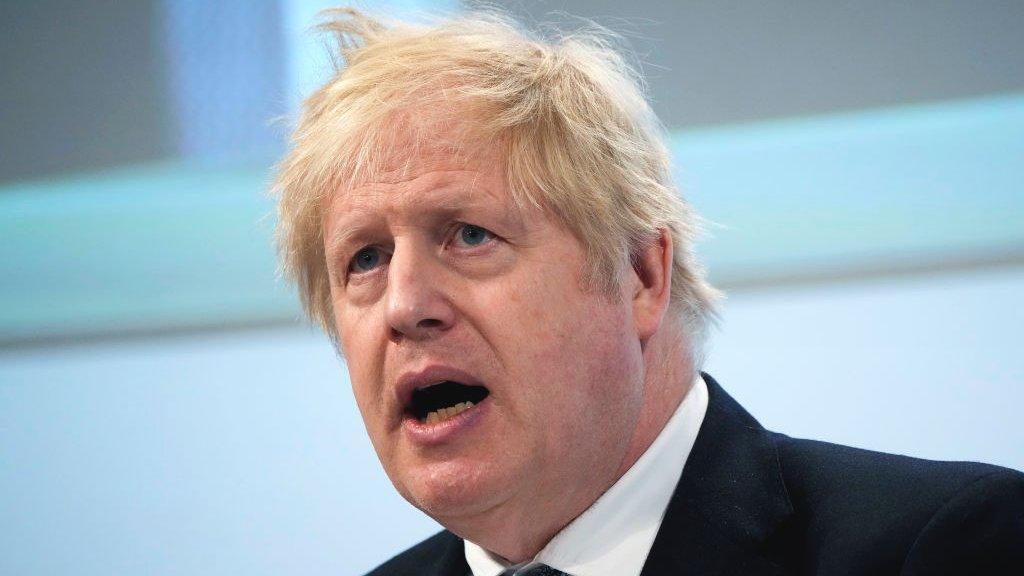Ukraine will not respond to provocations, Zelensky says
- Published
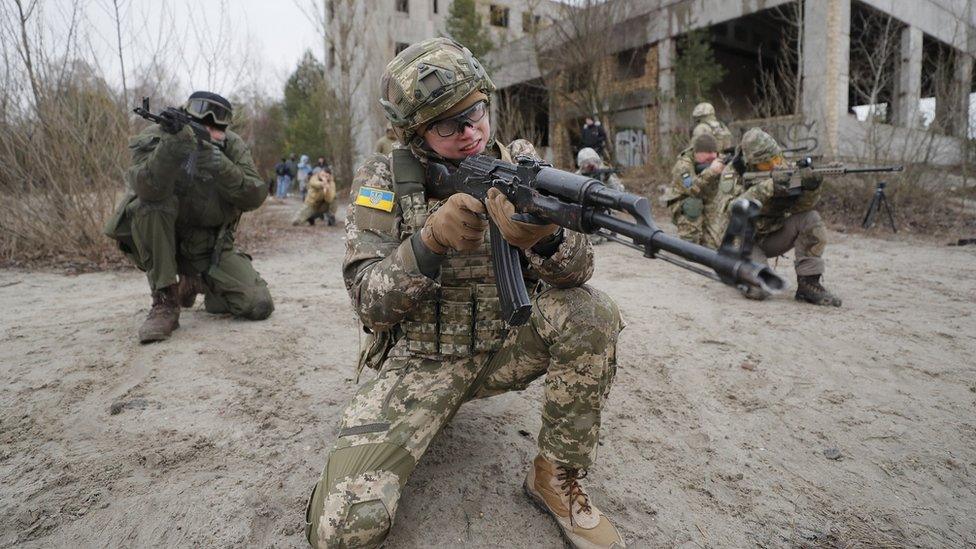
Reservists in the Ukrainian Territorial Defence take part in military exercises on Saturday
Ukraine's president has said his nation will not respond to provocations amid a deadly escalation in fighting in rebel Russian-backed eastern territories.
But Volodymyr Zelensky told world leaders Ukraine would defend itself against Russian aggression.
Two Ukrainian soldiers were killed on a third day of clashes between Ukraine's military and Russian-backed rebels.
US President Joe Biden said he was convinced Russia would invade Ukraine, but Moscow has denied this.
Western nations have accused Russia of trying to stage a fake crisis in the eastern regions as a pretext to invade.
But speaking to a security conference in Munich, President Zelensky said Ukrainians were "not panicking, we want to live our lives".
He accused Western leaders of a "policy of appeasement" towards Moscow and demanded Ukraine be given new security guarantees. President Zelensky travelled to Munich despite being warned by US officials that it was unsafe to leave his country.
His comments came as monitors reported a "dramatic increase" in attacks along the line dividing rebel and government forces in eastern Ukraine. There were more than 1,400 explosions in the breakaway Donetsk and Luhansk regions on Saturday alone, monitors said.
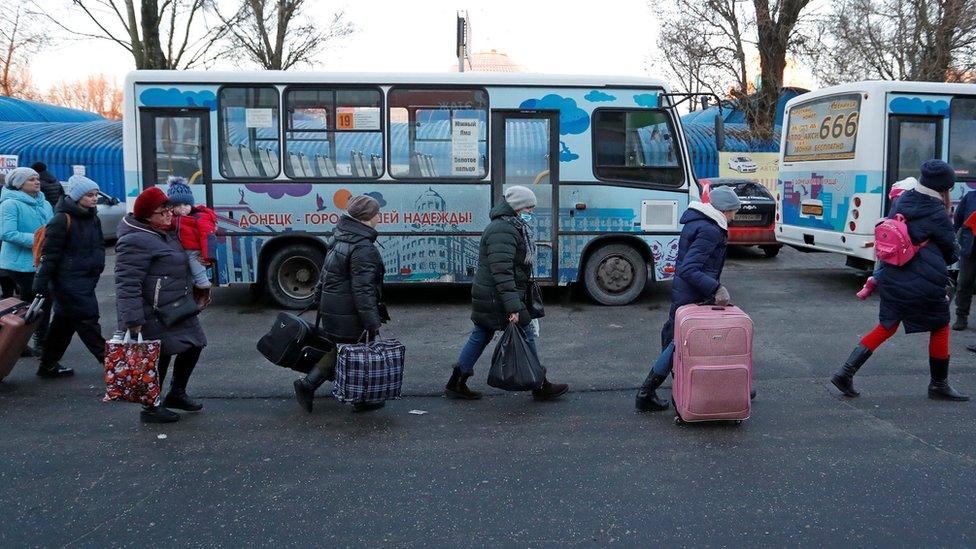
Some people boarded buses after residents in the city of Donetsk were ordered to evacuate
Denys Monastyrsky, the Ukrainian interior minister, had to be hurried into a bomb shelter after coming under shellfire while he was touring the front lines.
Rebels in the self-declared people's republics of Donetsk and Luhansk have ordered a mobilisation of all men of fighting age and urged other civilians to evacuate to Russia. The separatists claimed, without providing evidence, that Ukraine was planning to attack.
Many did not comply with the evacuation order, instead remaining at their homes.
ON THE GROUND: Criss-crossing Ukraine with Zelensky
EXPLAINER: What is a false flag attack?
CONTEXT: Satellite images show Russian activity near Ukraine
BACKGROUND: Is Russia going to invade Ukraine?
Russian media released a series of unverified reports of attacks or attempted attacks inside rebel-held territory on Saturday.
Russia launched a criminal investigation into reports, denied by Ukraine, that shells exploded on Russian territory in the Rostov region, about 1km (0.6 mile) from the Ukrainian border.
As reports of shelling continued, Germany and France became the latest Western countries to urge their citizens to leave Ukraine. The German airliner Lufthansa will suspend flights to Ukraine for a week from Monday.


As Western leaders met in Munich, Russia was putting on another demonstration of its military capabilities. It says it launched advanced hypersonic missiles as part of strategic nuclear drills, which were overseen by President Vladimir Putin.
Russia has been holding military exercises in Belarus, close to the border with Ukraine. The drills followed a build-up of Russian troops - estimated by the US to be between 169,000 and 190,000, which includes rebels in eastern Ukraine - along Ukraine's borders.
US Defence Secretary Lloyd Austin said Russian forces were beginning to "uncoil and move closer" to the border with Ukraine.
In an earlier speech to the conference, US Vice-President Kamala Harris accused Moscow of trying to create a fake pretext for invading Ukraine and warned the consequences for Russia would be "severe and swift".
In other developments:
UK Prime Minister Boris Johnson told the BBC that evidence suggested Russia was planning "the biggest war in Europe since 1945"
President Biden will convene a meeting of the National Security Council on Sunday to discuss the situation in Ukraine
Also on Sunday, French President Emmanuel Macron is due to speak on the phone to President Putin
Watch as US Vice-President Kamala Harris warns Russia of consequences if it invades Ukraine
Ukraine, a former Soviet republic with historic ties to Russia, is not a member of Nato or the European Union but has close relations with both.
Russia is insisting Ukraine should not be allowed to join Nato, which it sees as a threat to its security.
Related topics
- Published19 February 2022
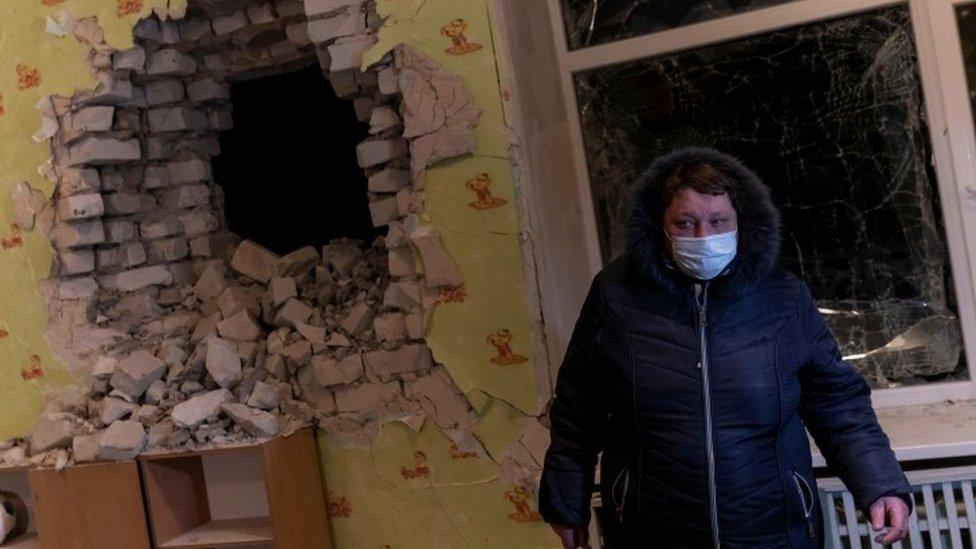
- Published19 February 2022
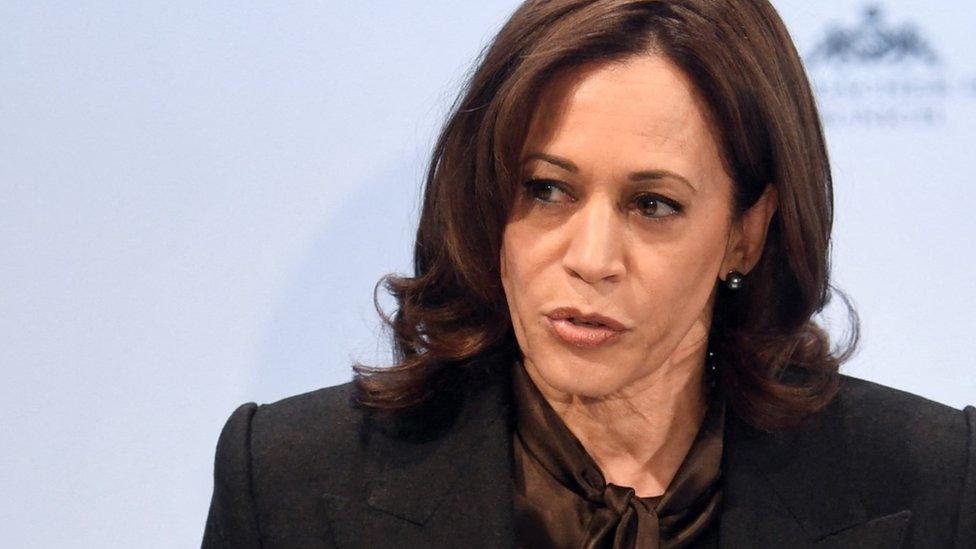
- Published19 February 2022
